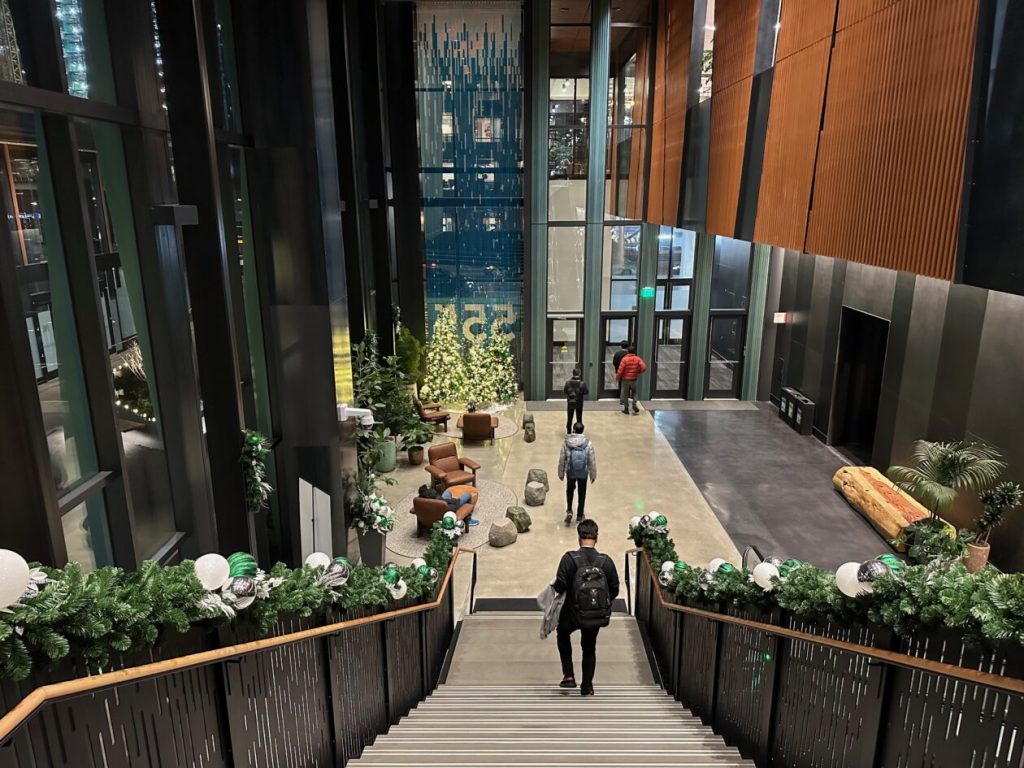The Shifting Tides Between Seattle and Bellevue’s Tech Landscapes
In a recent examination of the evolving tech landscape in the Pacific Northwest, The Wall Street Journal has highlighted a notable shift in momentum from Seattle to its eastern neighbor, Bellevue. Just two weeks after publishing an article detailing potential economic troubles for Seattle stemming from layoffs at tech giants Microsoft and Amazon, the WSJ returned with a glowing portrayal of Bellevue as an increasingly attractive alternative for both tech companies and their workers. The article, titled “Tech Companies Can’t Get Enough of This Picturesque Seattle Suburb,” praises Bellevue for its cleaner streets, superior school systems, lower crime rates, and expanding office spaces that have successfully attracted companies like TikTok, OpenAI, and Snowflake. This eastward migration suggests a significant rebalancing of the region’s tech ecosystem, with former Seattle City Council member Peter Steinbrueck noting that Seattle’s “glory days of economic expansion have ended” as “the pendulum has swung to the Eastside.”
The Bellevue Chamber of Commerce eagerly capitalized on this national recognition, proudly sharing the WSJ article in their newsletter with enthusiastic language: “The Wall Street Journal has its sights set on Bellevue, and we don’t blame them one bit. Our little chunk of techy paradise, it seems as though the rest of the nation is finally catching on to what we all already know: Bellevue frickin’ rocks.” This promotional stance further fuels the ongoing rivalry between the neighboring cities, as both compete for tech talent and corporate investment. Companies like Snowflake have already made significant moves to Bellevue, with more than 700 employees relocating to new office space in the city’s Spring District in June. During the ribbon-cutting ceremony, Bellevue Mayor Lynn Robinson expressed appreciation with an airline-inspired greeting: “Like the airlines say, ‘We know you could have chosen another city, we’re glad you chose us.'”
The competition between Seattle and Bellevue has historical roots but has intensified significantly in recent years. For decades, Seattle held an undisputed advantage as the region’s primary tech hub, offering not just employment opportunities and innovation but also a vibrant cultural scene that attracted young tech workers. However, a pivotal moment occurred in 2018 when relations between Amazon and Seattle’s elected officials deteriorated after the City Council attempted to implement a $275-per-employee “head tax” on the tech giant. This tension catalyzed Amazon’s rapid expansion in downtown Bellevue, where they’ve already established a presence of 14,000 workers across new buildings, with plans to eventually house 25,000 employees in the city. This strategic corporate redistribution represents a meaningful shift in the regional power dynamic, with Amazon effectively creating a more distributed headquarters model that benefits Bellevue significantly.
Despite Bellevue’s rising prominence, Seattle leadership remains confident in the city’s competitive advantages. Seattle Mayor Bruce Harrell recently asserted that Seattle maintains its edge over Bellevue, highlighting the city’s diversity, vibrant arts and music scenes, exceptional culinary offerings, and history of innovation. Harrell specifically pointed to Seattle’s new waterfront AI House, claiming ownership of the startup hub concept: “Bellevue didn’t have the idea for the startup hub, Seattle did.” This spirited defense underscores the increasingly competitive relationship between the two cities, with each working to position itself as the premier destination for tech investment and talent in the Pacific Northwest. The mayor’s statements reflect Seattle’s determination to preserve its status as the region’s preeminent tech hub despite the challenges it currently faces.
The post-pandemic environment has created additional challenges for Seattle’s downtown core, potentially accelerating Bellevue’s rise as a tech destination. Seattle continues to struggle with high office vacancy rates and the departure of several major retailers, creating opportunities that Bellevue’s business community has been quick to capitalize on. Steve Luthman, global head of real estate at Hines, a developer and manager in Bellevue, offered a pointed assessment in the WSJ report: “Clean and safe is everything and Seattle is not that.” This stark characterization highlights the perceived differences in urban environment that may be influencing corporate decision-making. The contrast between Seattle’s urban challenges and Bellevue’s more managed suburban setting has become a key factor in the competition for tech investment, with quality-of-life considerations increasingly influencing where companies choose to establish or expand their operations.
This evolving relationship between Seattle and Bellevue represents more than just a local rivalry—it illustrates broader trends in how tech hubs develop and compete in the post-pandemic era. While Seattle still offers the advantages of an established urban center with cultural depth and historical significance in the tech industry, Bellevue presents an alternative vision with its emphasis on cleanliness, safety, and newer infrastructure. The migration of major players like Amazon, along with the arrival of companies like Snowflake, TikTok, and OpenAI in Bellevue, suggests that tech companies are increasingly willing to consider locations beyond traditional urban centers. As this dynamic continues to unfold, both cities will need to address their respective challenges and leverage their unique strengths to remain competitive in attracting tech talent and investment. The outcome of this regional competition may ultimately provide valuable insights into the future of work and urban development in technology-focused regions across the country.


